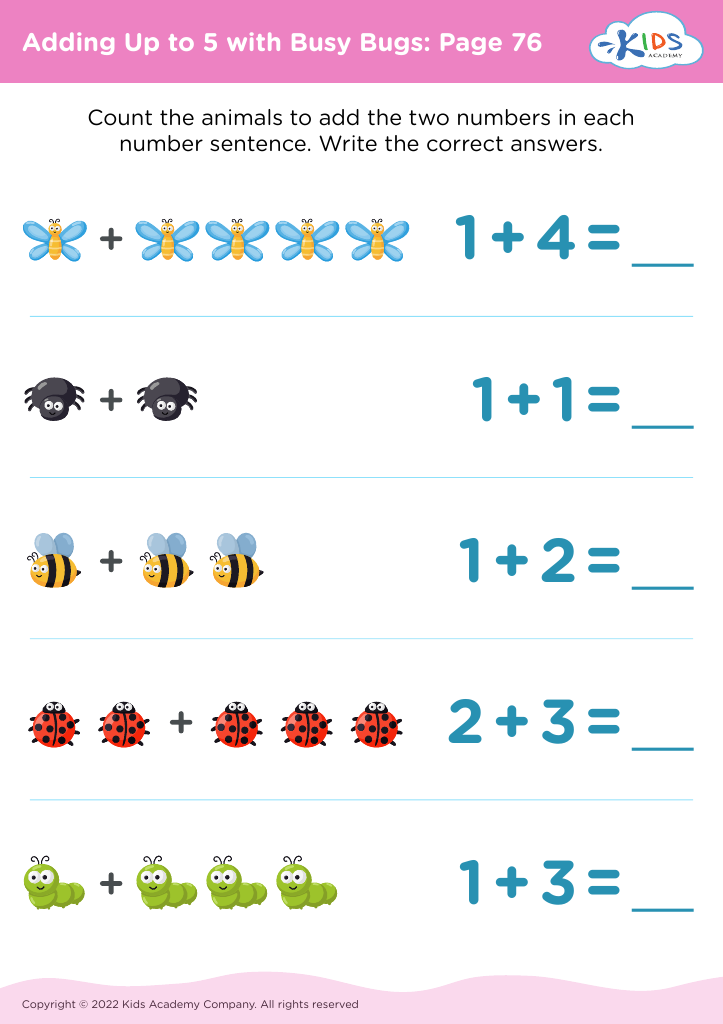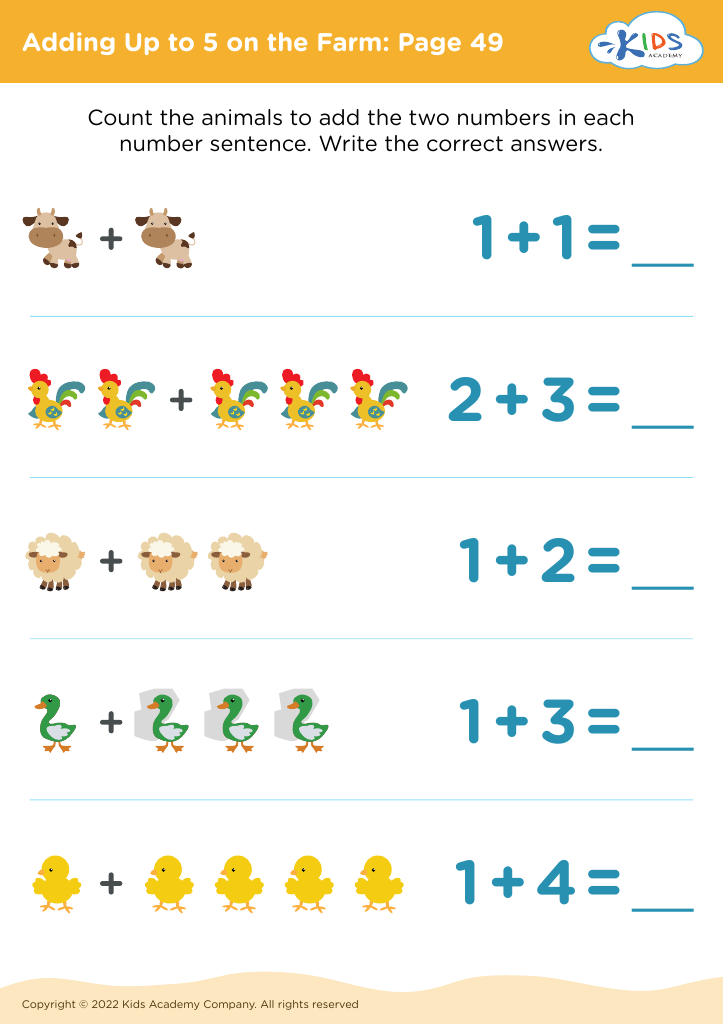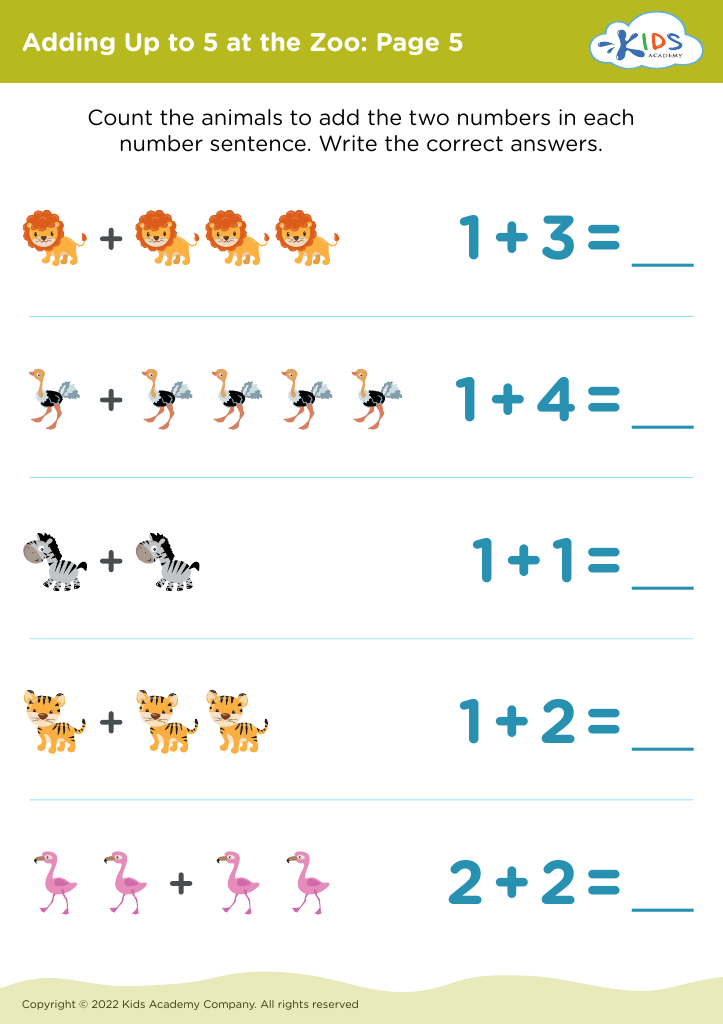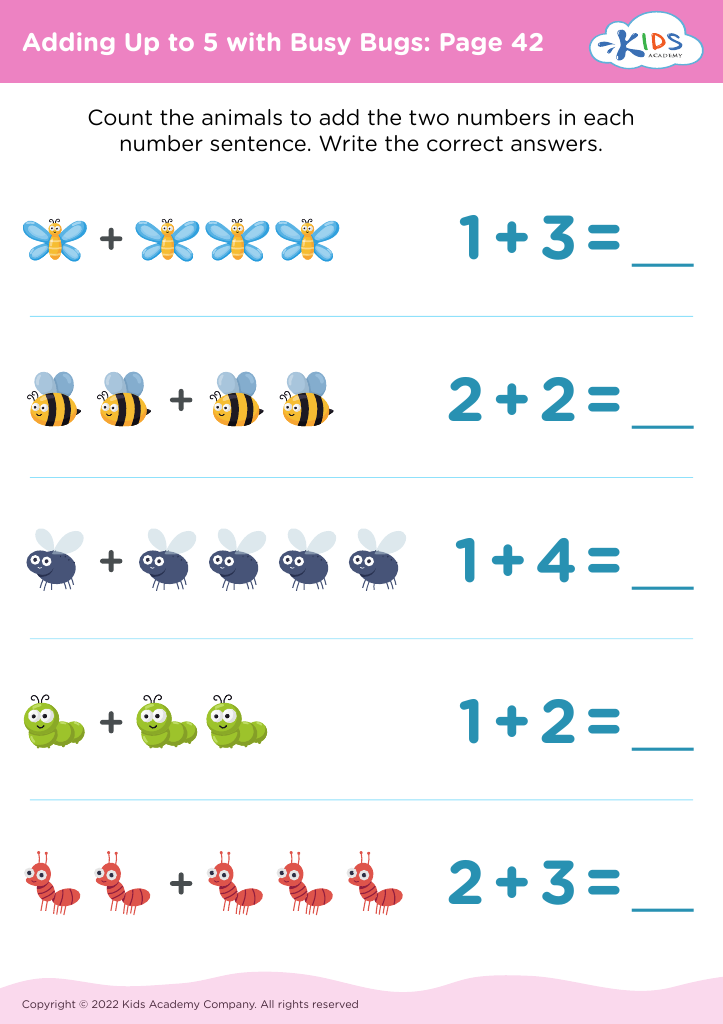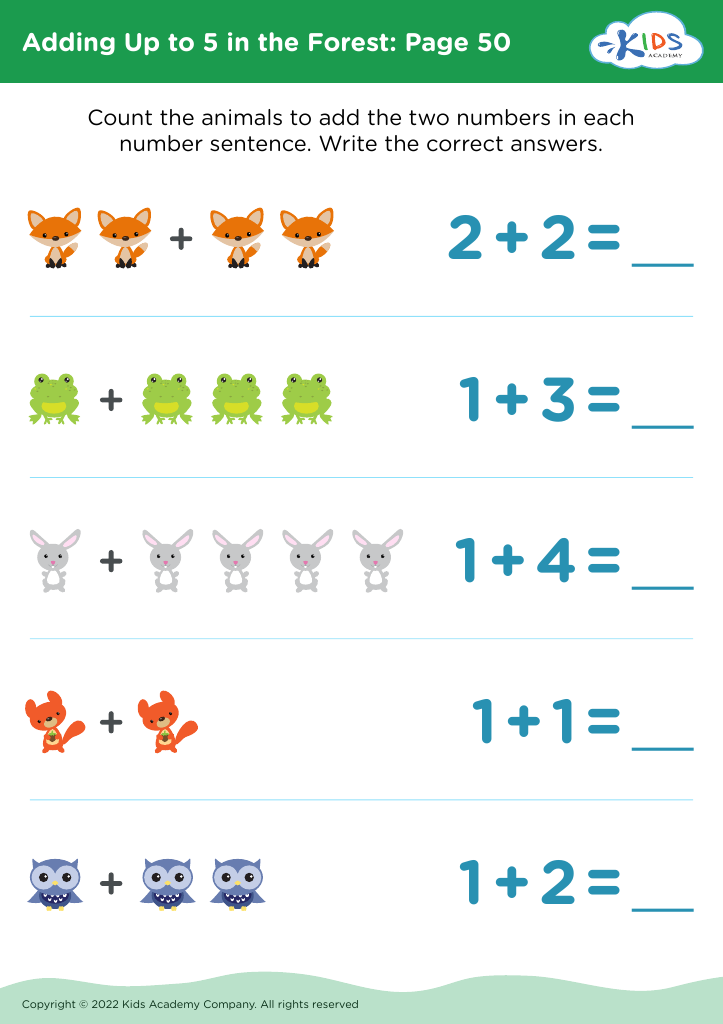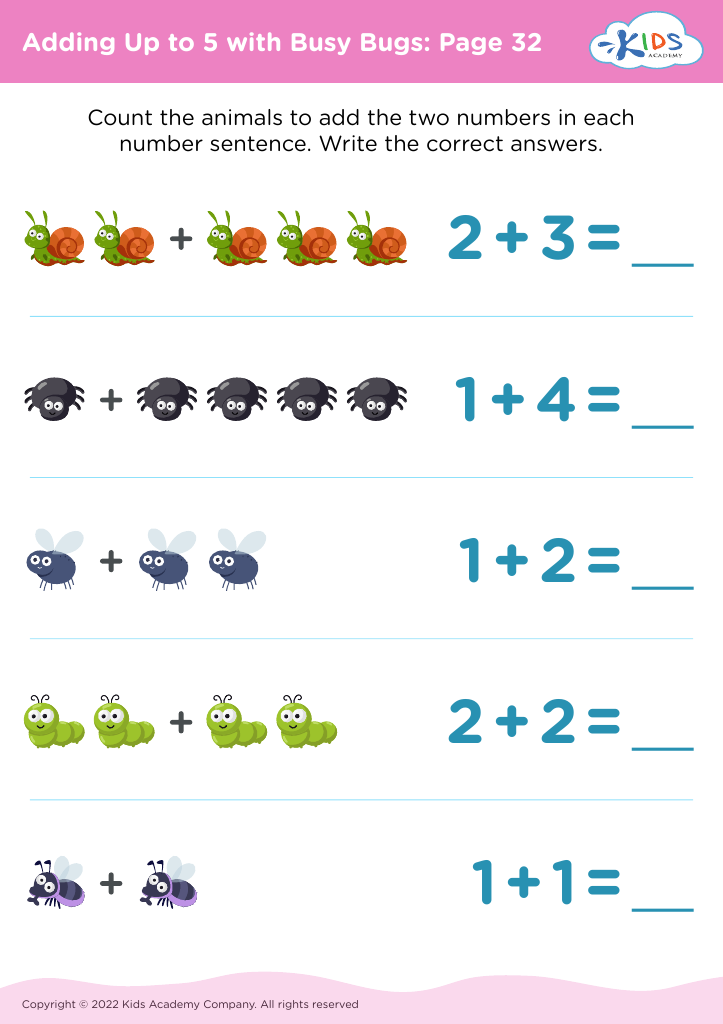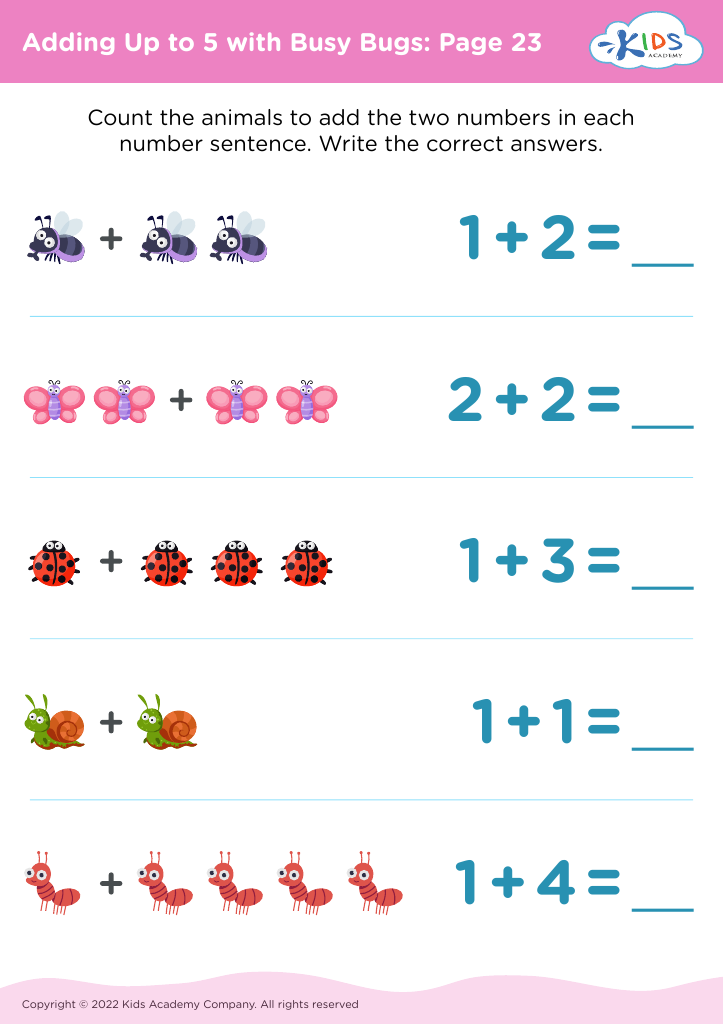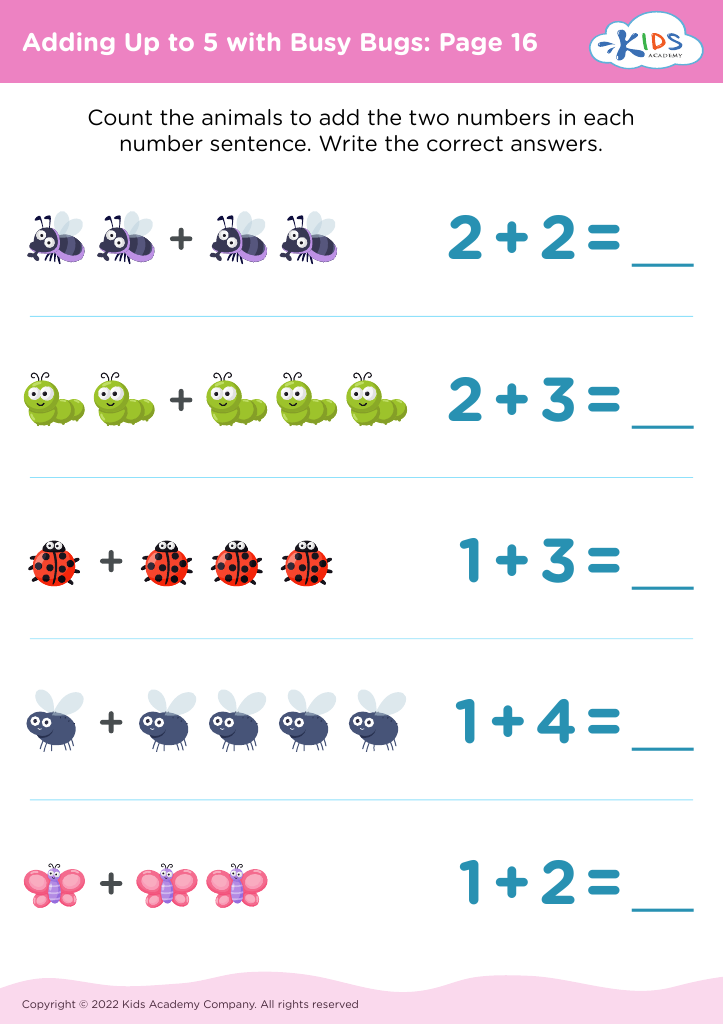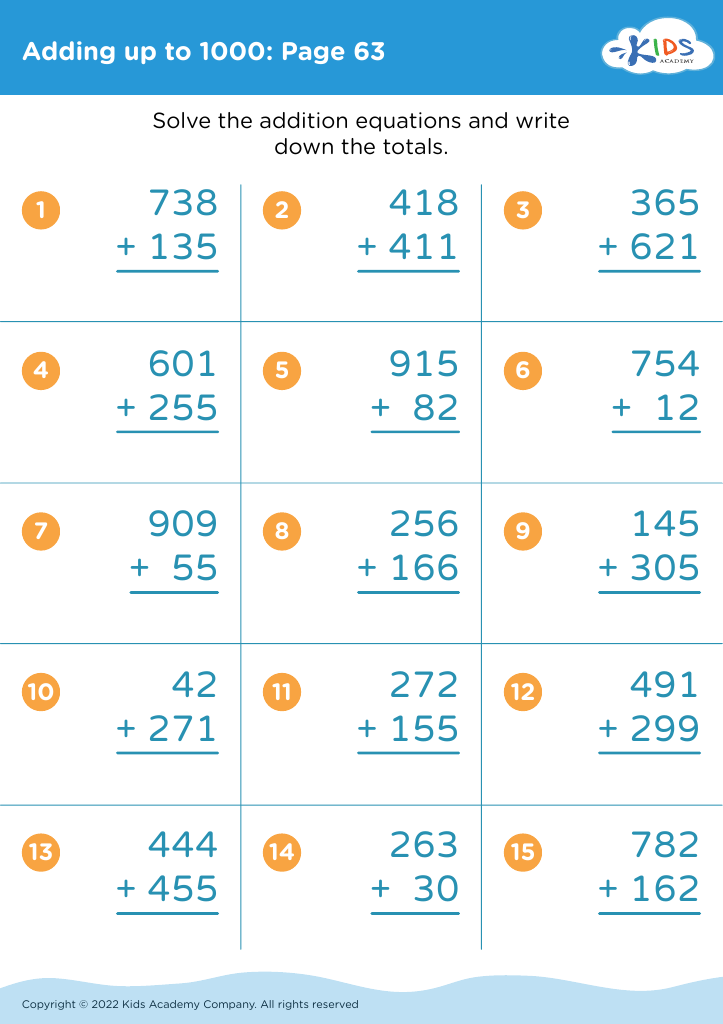Basic math concepts Addition & Subtraction Worksheets for Ages 5-9
13 filtered results
-
From - To
Discover our comprehensive collection of Addition & Subtraction Worksheets tailored for kids aged 5-9 at Kids Academy. These engaging and fun worksheets help children grasp fundamental math concepts while strengthening their arithmetic skills. Perfect for young learners, each worksheet offers a range of activities designed to improve counting, problem-solving, and logical thinking. Our expertly crafted exercises make learning basic math an enjoyable adventure, fostering confidence and a love for mathematics in your child. Visit us to explore our extensive library and support your child's educational journey with top-quality resources suited for Pre-K, Kindergarten, and early elementary students.
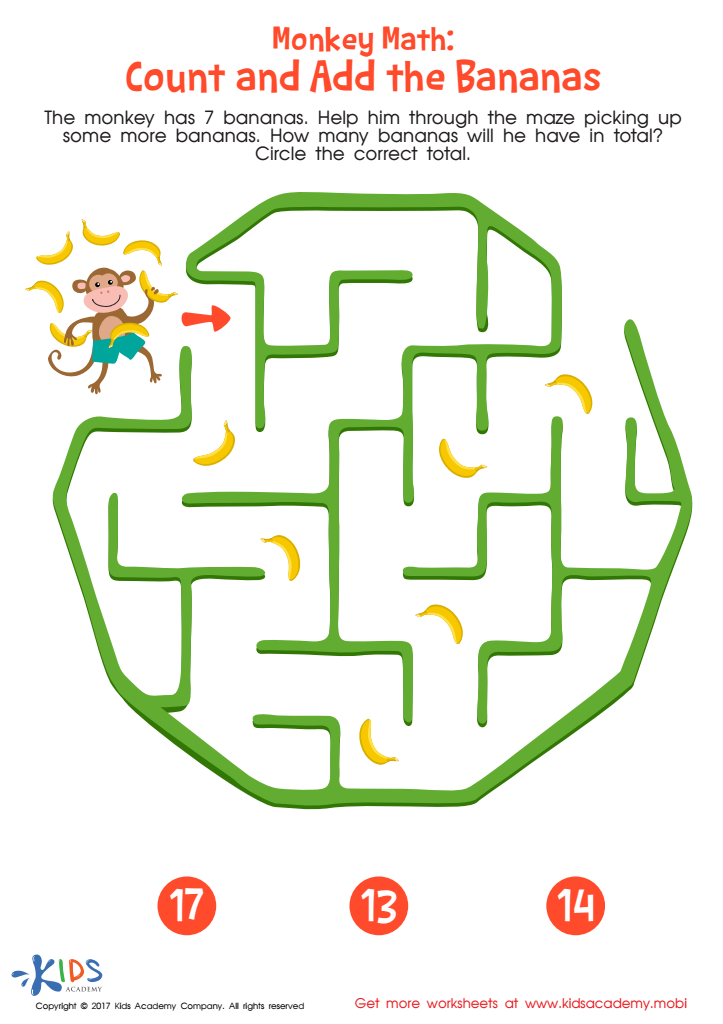

Parents and teachers should prioritize teaching basic math concepts like addition and subtraction for ages 5-9 because these are foundational skills essential for future academic success and everyday problem-solving. During these formative years, children's brains are highly receptive to learning new information, making it an ideal time to introduce these concepts.
Addition and subtraction are the building blocks for more advanced mathematical concepts, including multiplication, division, and algebra. Mastery of these basics boosts children's confidence and sets the stage for a positive attitude towards math, increasing the likelihood of academic success in later grades.
Moreover, understanding these concepts aids in developing critical thinking and logical reasoning skills. Children learn to recognize patterns, make connections, and understand numerical relationships, which are beneficial beyond the classroom. For instance, they apply these skills when sharing toys, understanding time, or even during grocery shopping with parents.
Additionally, early proficiency in math has been linked to improved cognitive development and better performance in other subjects. Therefore, ensuring that children grasp these fundamental concepts not only secures their academic future but also equips them with indispensable life skills. In sum, laying a strong mathematical foundation enables children to face future challenges with confidence and competence.
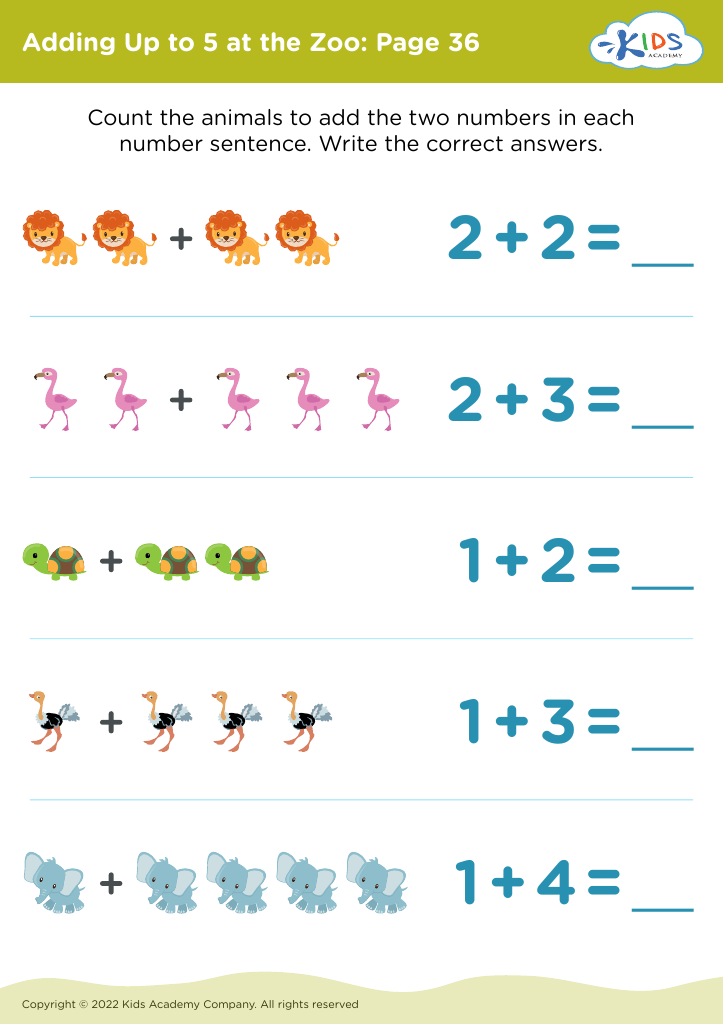
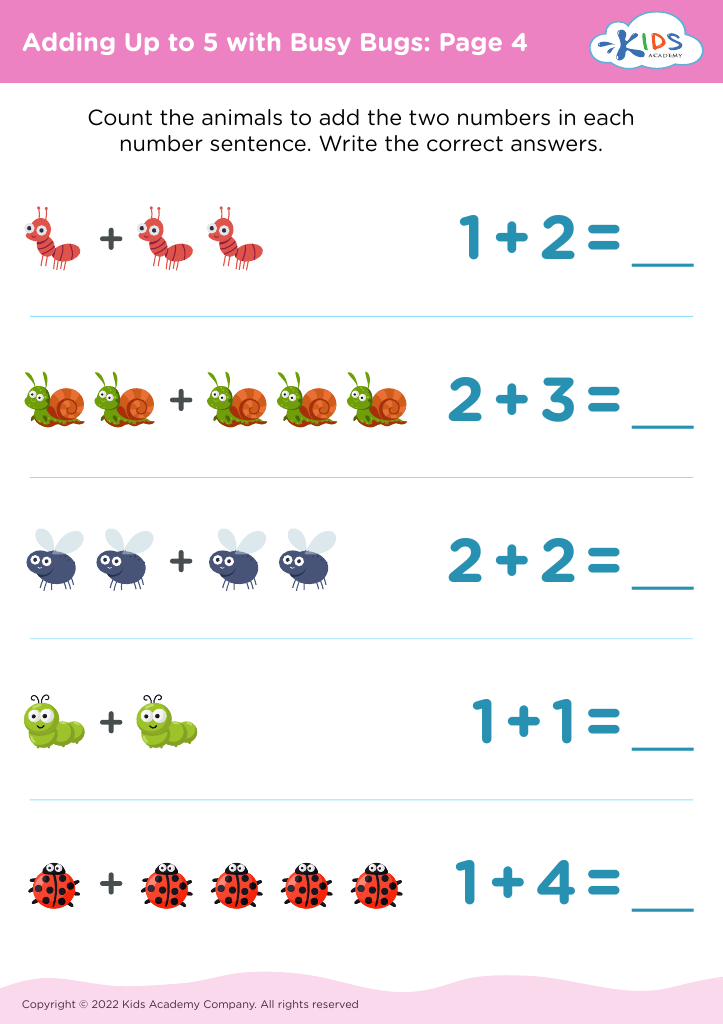
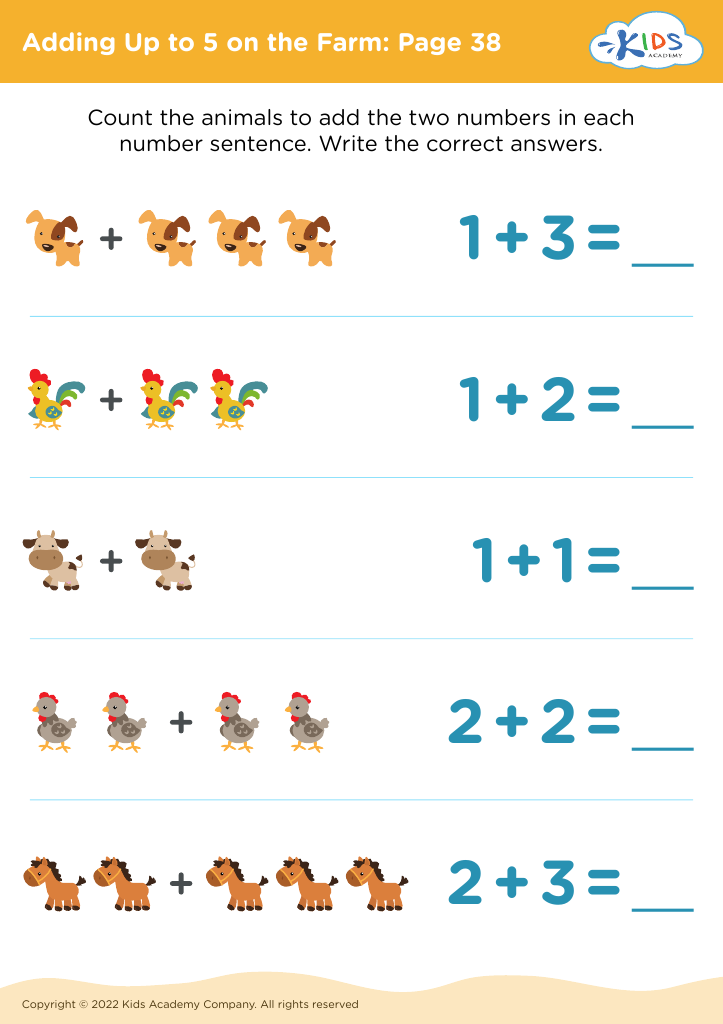
 Assign to My Students
Assign to My Students
